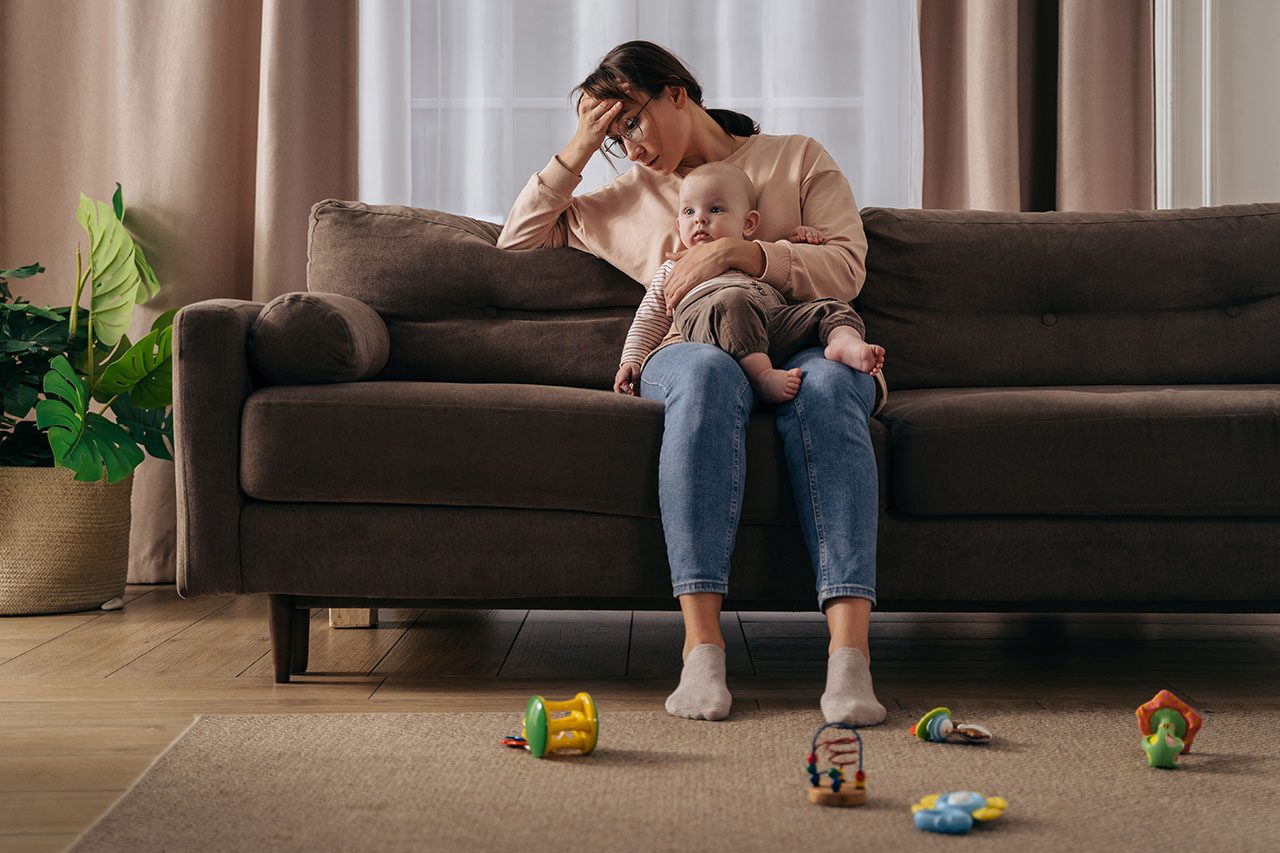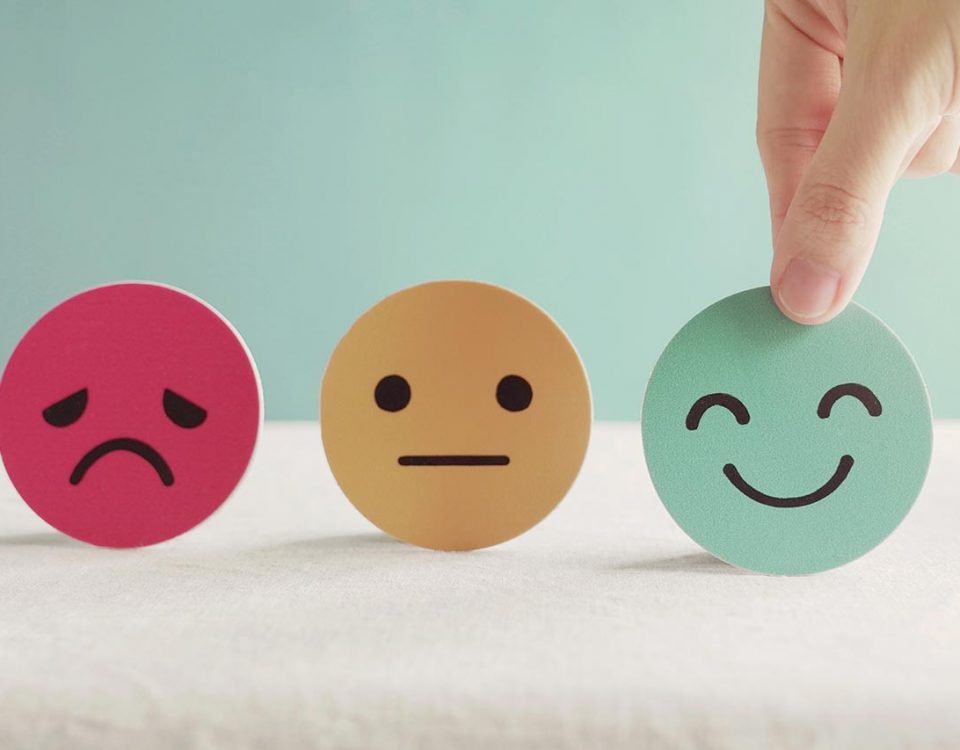


Stay-at-Home Mom Depression: Tips for Coping
August 18, 2023

Signs of Schizophrenia in Women
September 27, 2023Do I Need Therapy?


Do I Need Therapy?
In the tangle of life's challenges and emotional difficulties, we often find ourselves at a crossroads that makes us ask ourselves "Do I need therapy?". This question, while seemingly straightforward, can lead you down a rabbit hole of introspection, self-discovery, and the pursuit of mental well-being. In a world that champions resilience and self-sufficiency and struggles to acknowledge the importance of mental health, admitting the need for professional guidance is a big step. As a nationwide family of facilities for mental health that’s helped thousands of people heal, we’re sharing the signs that someone needs therapy as well as information on the types of therapies out there to make the process of getting treatment easier for those who need it.
How Do I Know if I Need Therapy?
Determining whether you need therapy is a personal choice and can depend on various factors. If you’ve been struggling with your mental health lately or feel emotionally exhausted, you might be asking yourself “Do I need therapy?” But how can you be sure?
Below are some signs that you need therapy which can help you assess whether it’s time for you to search for support:
- You’re experiencing persistent feelings of sadness or hopelessness: If you find yourself feeling down, empty, or hopeless for an extended period (specifically two weeks or longer), therapy could help address any contributing factors and determine if you have a mental health disorder.
- You feel overwhelmed by anxiety or fear: Experiencing intense and persistent anxiety, panic attacks, or irrational fears that interfere with daily life may indicate that you need therapy.
- You’re struggling to cope with stress: If certain stressors are becoming overwhelming and you're struggling to cope, therapy can teach you how to manage stress more effectively.
- Your sleep and appetite have changed: Significant changes in sleep patterns, appetite, or weight can indicate emotional distress that might be addressed with therapy.
- You’re isolating yourself from others: If you've been withdrawing from social activities, friends, and family, therapy can help you pinpoint and address the contributing factors.
- Your relationships are struggling: Therapy can help you understand and address consistent difficulties in maintaining healthy relationships, whether with family, friends, or partners and improve communication and coping skills.
- You’re engaging in substance abuse: If you're turning to drugs, alcohol, or other substances to cope with your emotions, we encourage you to get therapy to develop healthier coping skills and avoid a potential co-occurring disorder.
- You have unexplained physical symptoms: You might need therapy if you’re experiencing chronic physical symptoms like headaches, stomachaches, or other pains that have no clear medical cause.
- You have low self-esteem: Therapy can help you build a more positive self-image if you have persistent feelings of worthlessness or low self-esteem.
- You’ve endured trauma: Therapy can address unresolved trauma from past experiences and provide a safe space for you to process and heal.
- You struggle with obsessive thoughts or behaviors: Therapy can offer coping strategies to help you cope with obsessive thoughts or compulsive behaviors that interfere with your day-to-day life.
- You have frequent mood swings: Therapy can address severe and frequent mood swings that impact your functioning.
- You have a lack of enjoyment: If you've lost interest in activities you used to enjoy, therapy can help you find out why and how to best cope.
- You struggle to manage your emotions: If you find it challenging to regulate your emotions and react in healthy ways, therapy can teach you management skills that can help.
- You often have negative thoughts: If you're stuck in a cycle of negative thoughts, such as constant self-criticism or catastrophizing, therapy can help you adjust your thinking.
Remember that seeking therapy is not a sign of weakness, but rather one of strength. With residential mental health facilities across the nation, Banyan has witnessed firsthand what personalized care and support can do for mental health. If you believe you’ve displayed signs you need therapy, consider reaching out to a qualified therapist or mental health provider like Banyan Mental Health.
What Type of Therapy Do I Need?
Now that we’ve answered the question, “How do I know if I need therapy?”, you might be asking, “What kind of therapy do I need?” Determining the specific kind of therapy you need depends on your challenges and goals.
Below are some common types of therapy and the issues they address:
- Cognitive Behavioral Therapy (CBT): Arguably one of the most successful and utilized psychotherapies, CBT focuses on identifying and changing negative thought patterns and behaviors, making it effective for treating anxiety, depression, phobias, and other mood disorders.
- Dialectical Behavior Therapy (DBT): DBT combines cognitive-behavioral techniques with mindfulness and is often used to treat borderline personality disorder, self-harm, and emotional dysregulation.
- Psychodynamic Therapy: This therapy explores unconscious thoughts and past experiences to understand how they influence current behaviors, making it useful for treating trauma-related symptoms and emotional dysregulation.
- Mindfulness-Based Therapy: Mindfulness techniques help manage stress, anxiety, and depression by teaching the individual how to be aware of the present moment. Common examples of this form of therapy are Mindfulness-Based Stress Reduction (MBSR) and Mindfulness-Based Cognitive Therapy (MBCT).
- Family Therapy: This therapy involves all members and is beneficial for improving communication, resolving conflicts, and addressing issues within family dynamics.
- Couples Therapy: Also known as relationship or marriage counseling, this form of therapy focuses on improving communication and resolving conflicts in romantic relationships.
- Trauma-Focused Therapy: Therapies like Eye Movement Desensitization and Reprocessing (EMDR) and Trauma-Focused Cognitive Behavioral Therapy (TF-CBT) help clients heal from past traumatic experiences and cope with symptoms of trauma disorders like post-traumatic stress disorder (PTSD).
- Art Therapy: This creative therapy uses different methods of art to express and explore emotions, making it easier for individuals to articulate their feelings.
- Group Therapy: Group therapy sessions offer a safe and supportive environment where members can share their experiences, gain insights, and learn from others facing similar challenges.
- Online Therapy: With the dawn of digital platforms, you can access various types of therapy remotely, which can be convenient for people with busy schedules or limited access to in-person therapy.
The best type of therapy for you will depend on your specific needs and preferences. What might work for someone else might not work for you. A qualified mental health professional – such as a psychologist, psychiatrist, licensed therapist, or counselor – can help assess your situation and symptoms and determine the most appropriate form of therapy for you. They can also work with you to create an individualized treatment plan that aligns with your goals.
Finding Mental Health Therapy Near Me
If you’ve decided, “ I do need therapy”, Banyan can help you get started. With facilities located in multiple states across the country as well as virtual treatment options, we can help you or a loved one recover from mental illness.
For more information about our adult mental health services, call Banyan Treatment Centers at 888-280-4763 or contact us online.
Related Reading:







